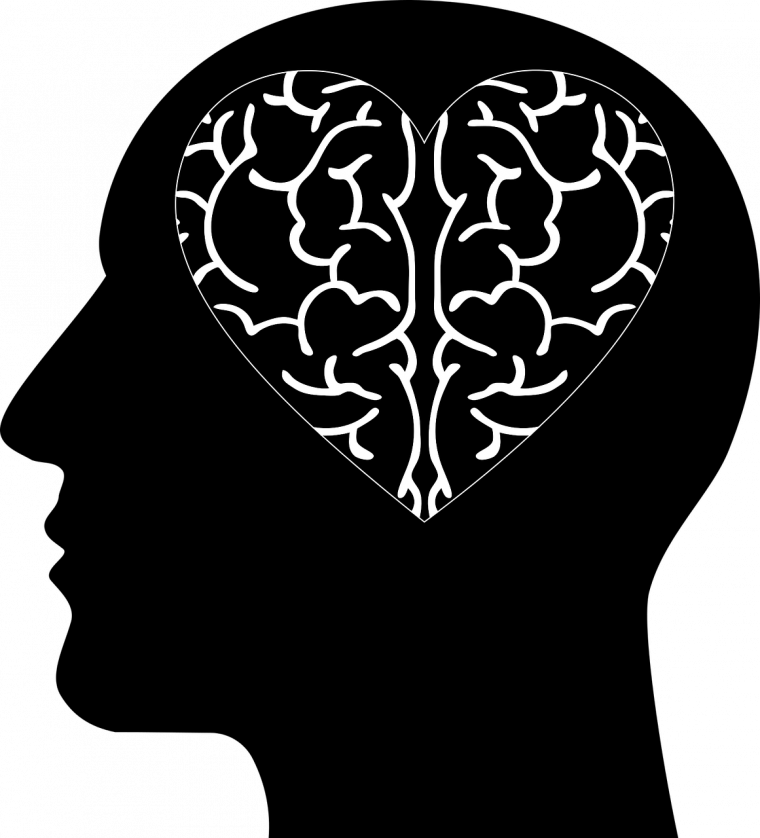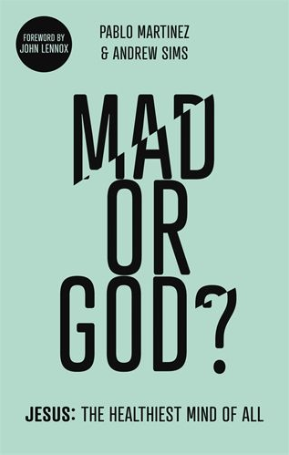Mad or God? A senior psychiatrist on the mental health of Jesus
Have you ever heard anyone impatiently dismiss Jesus and all he said and did with 'of course, he was mad or at least seriously mentally disturbed'?
Was the Jesus of the Gospels mad, or was he really, as he and his followers claimed, the Son of God? 'A man who was merely a man and said the sort of things Jesus said would not be a great moral teacher. He would either be a lunatic – on a level with the man who says he is a poached egg – or else he would be the devil of hell. You can shut him up for a fool, you can spit at him and kill him as a demon; or you can fall at his feet and call him Lord and God.'

In this famous quotation, called the trilemma, CS Lewis pointed to the core of the problem. This inspired and motivated us, as Christians and psychiatrists, to write the book with the title of this article in which we explore one of the options Lewis raised. Was Jesus mad or mentally deranged?
When Jesus was alive, the Gospels tell us that his enemies accused him of being 'demon-possessed and raving mad' (John 10) and that even his own family feared that he was 'out of his mind' (Mark 3). In our day, some atheists have re-asserted that Jesus was severely mentally ill in order to discredit him. As psychiatrists we cannot remain silent when our professional experience enables and equips us to offer a robust defence of Jesus' mental health.
But this book would not be complete if we limited our discussion to the subject of Jesus´ mental health, looking for evidence of mental illness. Another key question needs to be answered. Why did Jesus exert – and why do he continue to exert – such a power of fascination over men and women, a fascination that captivates Christians and non-Christians alike? Could ever a mentally sick man have such an astonishing influence on people´s lives? As Bono, the singer of U-2 said in an interview, 'I cannot imagine that a crackpot could have changed the lives of millions of people.'
What magnetic attraction could make a man like Dostoyevsky say: 'If someone proved to me that Christ is outsidethe truth and that in reality thetruthwere outside of Christ, then I should prefer to remain with Christ rather than with the truth'?
Most of the book provides answers to these questions. In the first part (chapters 1 to 3) our aim is to give evidence through psychiatric eyes that the mind of Jesus suffered from no mental illness or personality disorder. Then, following the logic of the 'trilemma', we move from the negative to the positive: if Jesus was notmentally deranged, we need to prove that he was indeed a man endowed with extraordinary mental stability and outstanding moral goodness. So the purpose of the second part (chapters 4 to 9) is to provide evidence that Jesus comes before us with the healthiest mind of all and the most balanced and perfect life.
Jesus' mental state throughout his ministry is crucial in determining whether we can trust his words, his claims about himself and what his life, death and resurrection mean to us. It underpins the source of his authority and indeed the whole basis of the Christian faith.

We investigate the person of Jesus through five tests: his character (he was a well-adjusted, mature person), his life (how his words and deeds were never in conflict with each other), his relationships with very different people throughout his life, his reaction to adversity including his suffering and death, and finally his influence on people, then and now. We reach the conclusion (chapter 9) that no mentally sick person or no evil man would ever have been able to speak or behave the way Jesus did. He was perfectly mentally healthy. Jesus was what he claimed to be: God.
This conclusion, however, requires not only intellectual acceptance, but personal commitment and it has determined both our starting point – trust – and the sources we have used - the Gospels. The Roman centurion who commanded the execution of Jesus exclaimed in amazement right after his death: 'Surely this man was the Son of God'(Matthew 27). We hope that our readers may come to a similar experience and be not only convinced that Jesus had the healthiest mind, but also attracted by his glorious character.
Dr Pablo Martinez is a psychiatrist, author and international speaker from Barcelona, Spain. Professor Andrew Sims is emeritus professor of psychiatry in the University of Leeds and former president of the Royal College of Psychiatrists.
'Mad or God? Jesus the healthiest mind of all' by Pablo Martinez and Andrew Sims is published by IVP on July 19, price £9.99.











